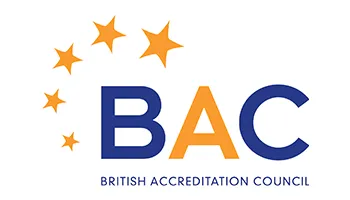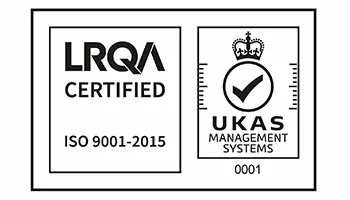
Degree vs. No Degree: Which One Leads to a More Secure Future?
Published on April 15, 2025 12:38
- Overview
- The Value of a Business Management Degree from OLC Europe
- How a Health and Social Care Degree Enhances Career Security
- Career Growth and Opportunities with a Degree vs. Work Experience
- Financial Stability and Job Security With A Degree
- Does a Degree Guarantee Success?
- What type of questions do students commonly ask about OLC Europe?
- Conclusion
Nowadays, there is tough competition in every field, so it is highly important to decide whether to get a degree or go into the industry without one. This decision can have an effect on job opportunities, professional development, and financial security for individuals with an interest in business management or health and social care. A degree from OLC Europe offers professional credibility, necessary skills, and organised education.
But other people think that gaining real-world experience is sufficient to launch an exciting profession. However, which choice among degree vs. work experience actually results in a more secure future? With an emphasis on these two expanding industries, this blog examines the advantages of graduating from OLC Europe as opposed to not having a degree.
The Value of a Business Management Degree from OLC Europe
Employers are looking for people with strong leadership, analytical, and decision-making skills in the competitive field of business management. Among the benefits of higher education students who complete an OLC Europe business management degree gain expertise in strategy, marketing, finance, and human resources.
Job seekers get credibility when they have a degree. Candidates with a proper education are trusted by employers since they have a thorough understanding of important business concepts. Most importantly, business strategy and leadership subjects in OLC Europe's business management degree equip graduates for issues they can face in the real world.
Additionally, those who possess a degree are more likely to make more money. According to studies, business professionals with degrees make more money than those without a degree. Because they are qualified for leadership positions, they also progress in their professions more swiftly.
On the other hand, the career path in business management can be unpredictable without a degree. Even though some people succeed based only on experience, the path is frequently more complex and you need to constantly prove that you have abilities to tackle any problem. It is challenging to succeed without formal education because many high-paying jobs require academic qualifications.
How a Health and Social Care Degree Enhances Career Security
Knowledge and degrees are essential in the health and social care industry. Professionals who can manage complex patient demands, understand healthcare regulations, and deliver ethical treatment are highly looked after by companies. The education and training required for these positions can be obtained with an OLC Europe degree in Cert HE Integrated Health, Social Care, and Wellbeing.
Graduates of this programme gain knowledge of social care leadership, community well-being, and health policies. These professional skills equip them for positions as social workers, healthcare coordinators, and managers of assisted living facilities. In order to provide students with practical experience prior to entering the job market, the degree also involves practical training.
It can be difficult to find a steady job in this sector without a degree. Because of their ethical and legal responsibilities, many health and social care positions require formal qualifications. Although there may be some entry-level jobs accessible without a degree, there is still little opportunity for career advancement. Academic degrees are frequently required for leadership positions and promotions. Consequently, making an investment in a degree guarantees both professional recognition and long-term career stability.
Quick fact for you!
Approximately 1.59 million people were employed in the adult social care sector in England during 2023/24. Due to an aging population, the demand for care workers is expected to rise significantly.
Career Growth and Opportunities with a Degree vs. Work Experience
More professional options become available with a degree, which is included in the benefits of higher education. Candidates that have shown their dedication to learning and growth are preferred by employers. At OLC Europe, students receive guidance from industry professionals, gaining insights that help them succeed in their careers.
Higher-level jobs are available to graduates of business management and health and social care. They can apply for positions requiring leadership skills and specific knowledge. Additionally, networking opportunities are made possible by a degree. Making connections with instructors, business leaders, and other students may result in professional recommendations and employment offers.
However, career advancement is frequently slower without a degree. To advance to leadership positions, people must rely on years of experience. Because employers prefer people with official degrees, and individuals who have no degree can also have trouble keeping their jobs. Hence, having a degree clearly provides you an advantage in finding permanent work in areas like business management and health and social care.
Financial Stability and Job Security With A Degree
One of the main benefits of higher education is financial security. Earning potential is increased with an OLC Europe degree. Graduates in business management frequently secure competitively paid positions in marketing, finance, and human resources. Other than this, students with a health and social care degree can also land steady jobs in care facilities, community centres, and hospitals.
Financial security is less likely without a degree. Many occupations that don't require a degree pay less and have fewer benefits. Due to the possibility of being replaced by applicants with superior qualifications, employees with no degree can also experience employment insecurity. On the other hand, those with degrees are better able to negotiate for better pay and benefits, which will safeguard their future.
Now here comes a question
Does a Degree Guarantee Success?
If you look through the comparison between degree vs. work experience then even while a degree has many benefits, success is not always assured by it alone. Because you need to do hard work, make networks, and never stop learning about new things. Most importantly, a degree offers a solid basis that makes it easier for people to succeed in the labour market.
As previously mentioned, a degree is a great asset in company management as well as health and social care because it improves credibility, financial security, and employment chances. But when you apply online to OLC Europe then you can not only get to learn theoretical knowledge but you can get a chance to explore how to handle things professionally in real life.
Working-age graduates (16–64 years old) made £40,000 on average, whereas non-graduates made £30,000. This suggests that graduates make £10,000 more annually on average than non-graduates.
What type of questions do students commonly ask about OLC Europe?
- Is a degree from OLC Europe necessary for a career in business management or health and social care?
While not mandatory, a degree from OLC Europe significantly enhances job opportunities, career growth, and financial stability in these fields.
- Can I succeed in business management or health and social care without a degree?
Success without a degree is possible but often takes longer. Many high-paying roles require formal education, making a degree a valuable asset.
- How does a degree improve job security in business management and health and social care?
Employers prefer candidates with formal qualifications, ensuring better job stability, career progression, and competitive salaries.
- Career growth with vs. without a degree which do you think guarantees a successful career?
A degree provides a strong foundation, but success also depends on hard work, networking, and gaining practical experience.
- What financial benefits come with earning a degree from OLC Europe?
Degree holders generally earn higher salaries, have better job security, and can access leadership positions compared to those without a degree.
Conclusion
The benefits of earning a degree from OLC Europe are evident when compared to not having a degree. You can not only get job security with a degree, but you can take advantage of credibility, career advancement, and financial stability, in business management as well as health and social care. Experience is important, but formal education opens up more chances and raises earning potential. So, contact OLC Europe and inquire more about the overall procedure to apply for a degree because it ensures long-term success in these cutthroat professions and a prosperous career.











